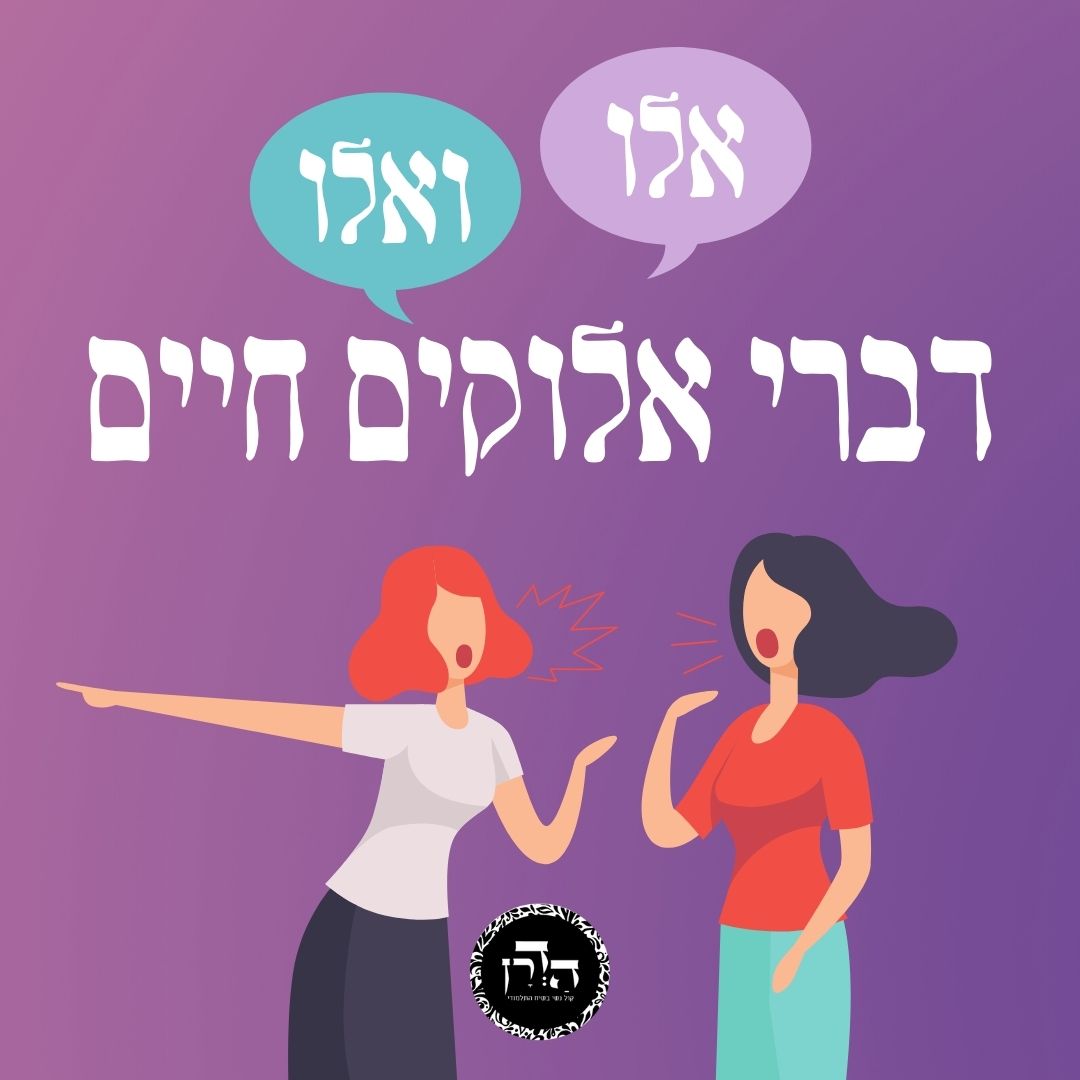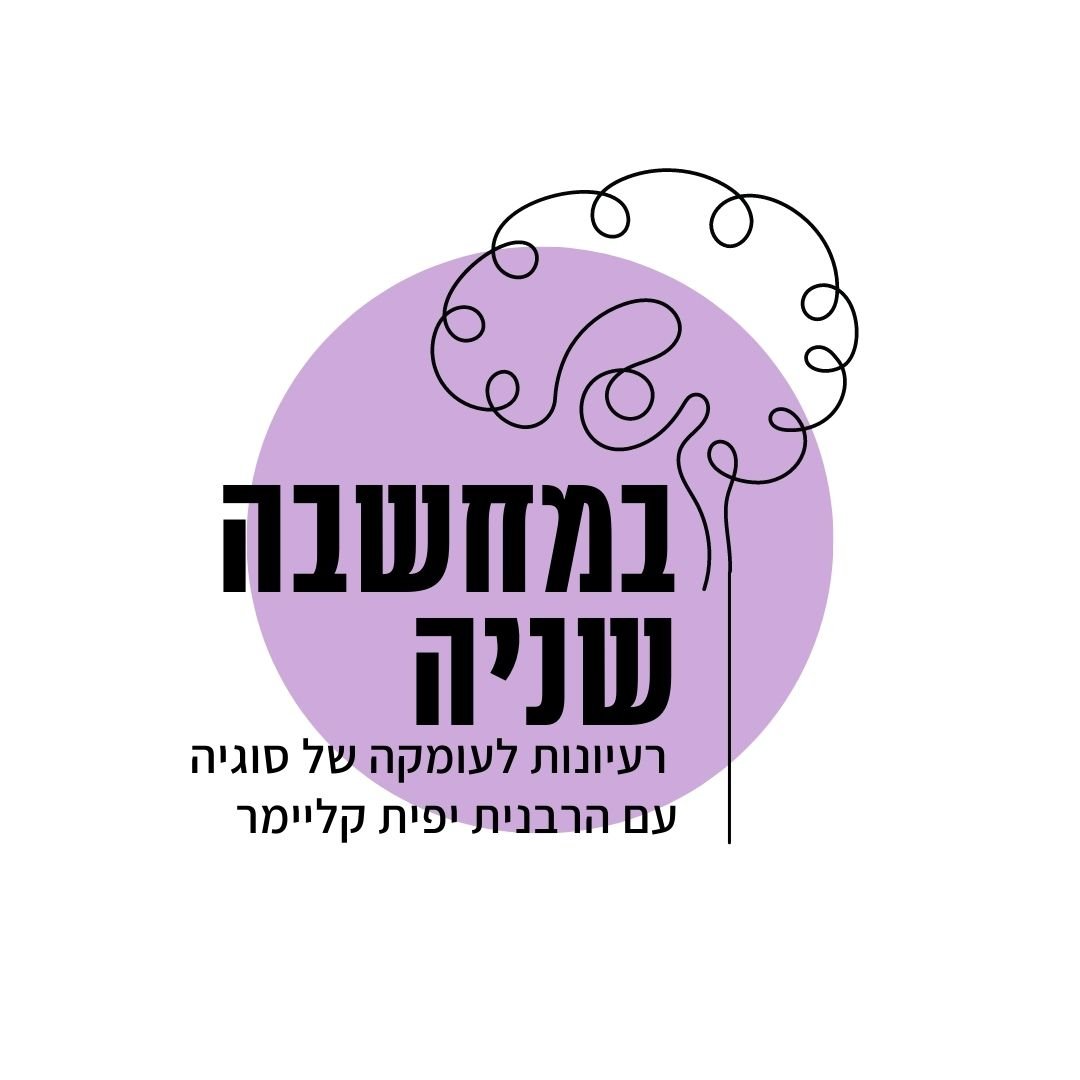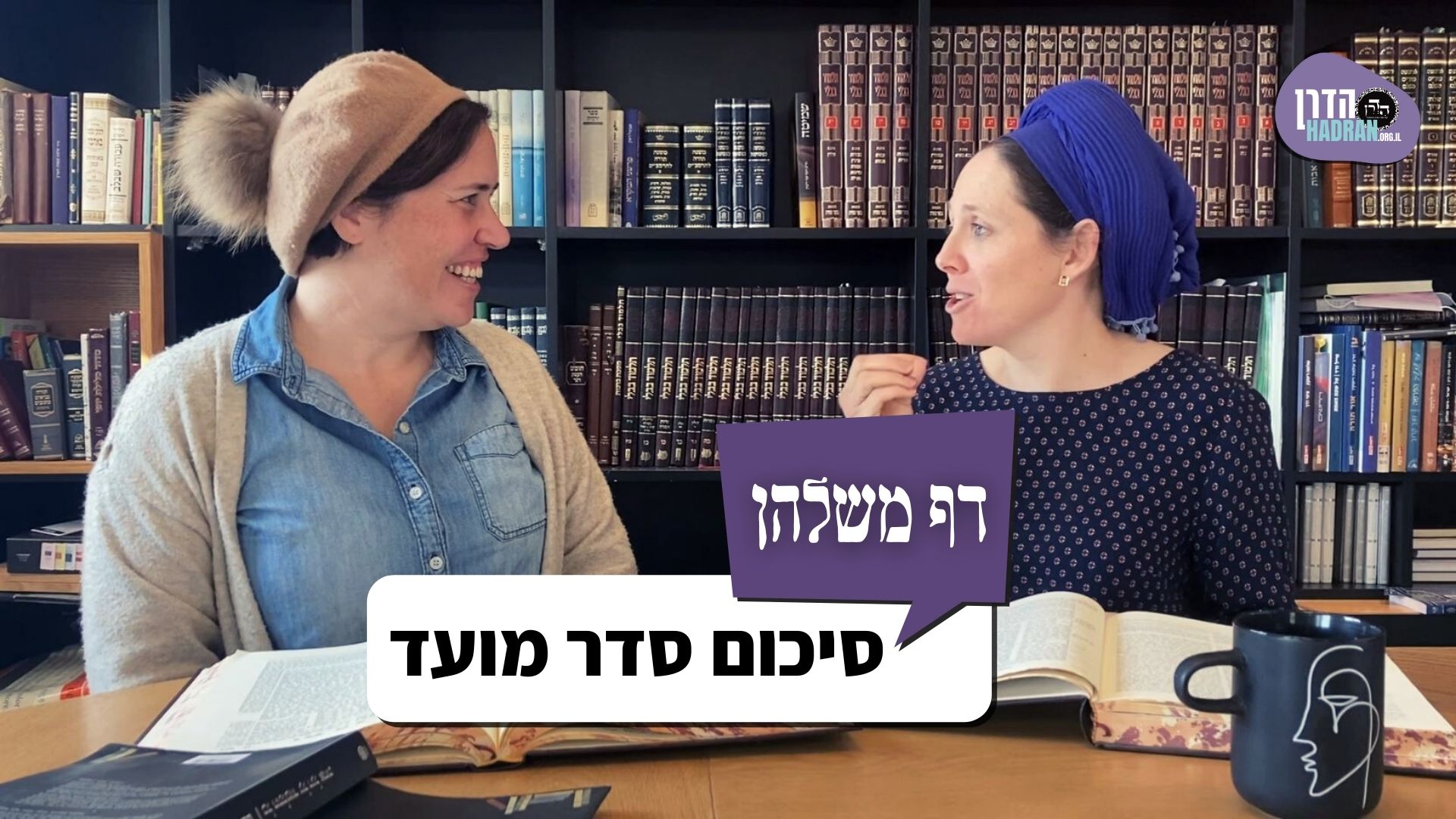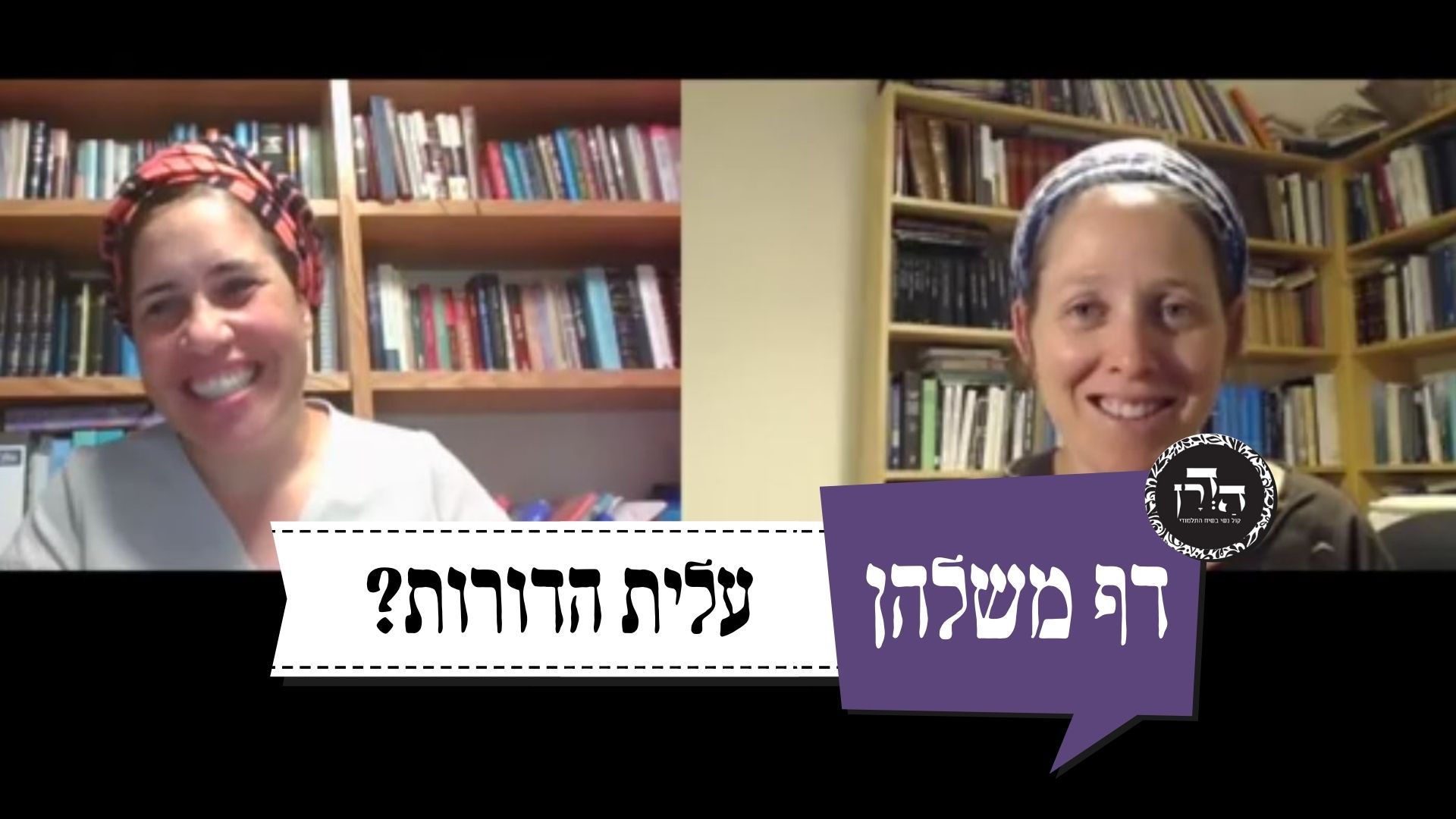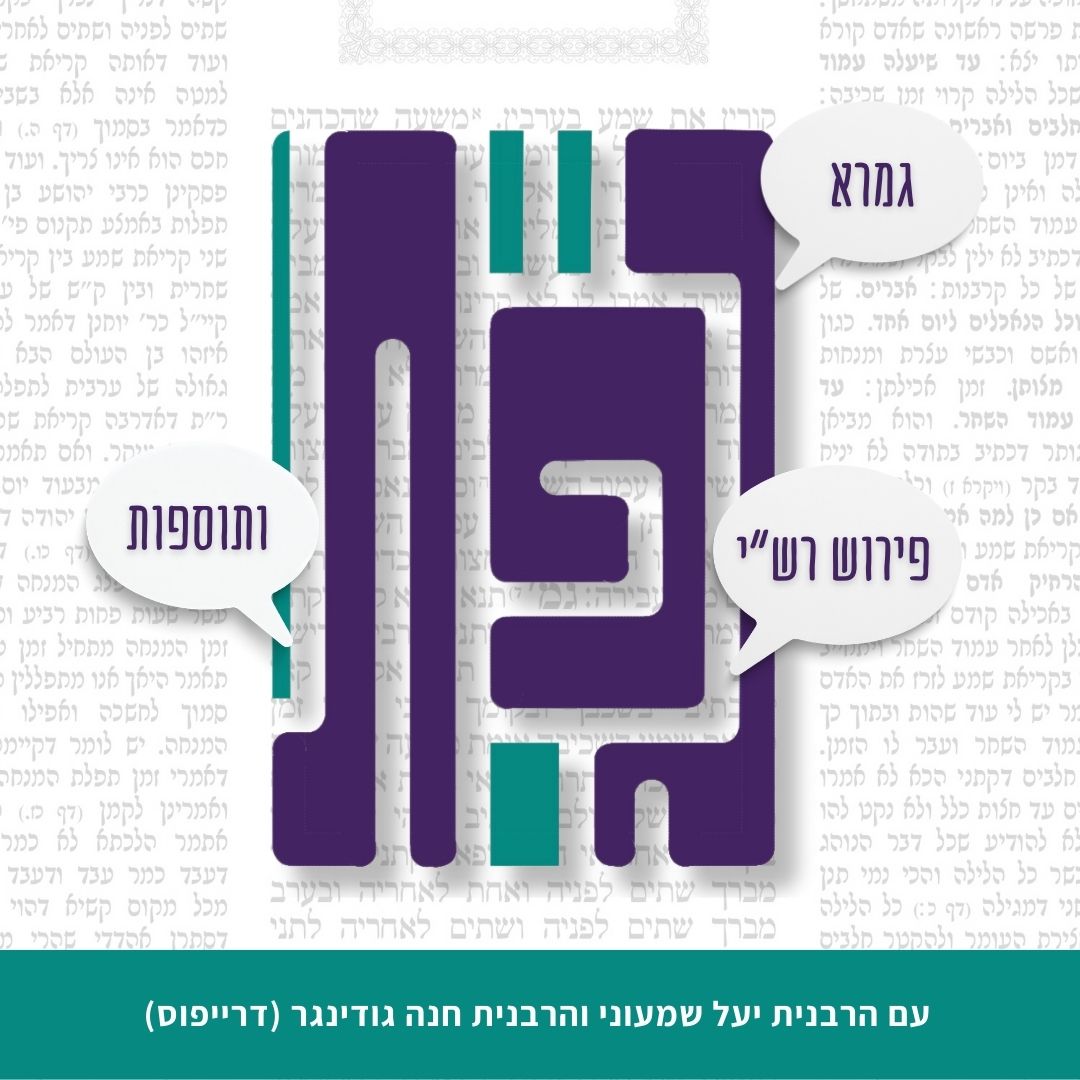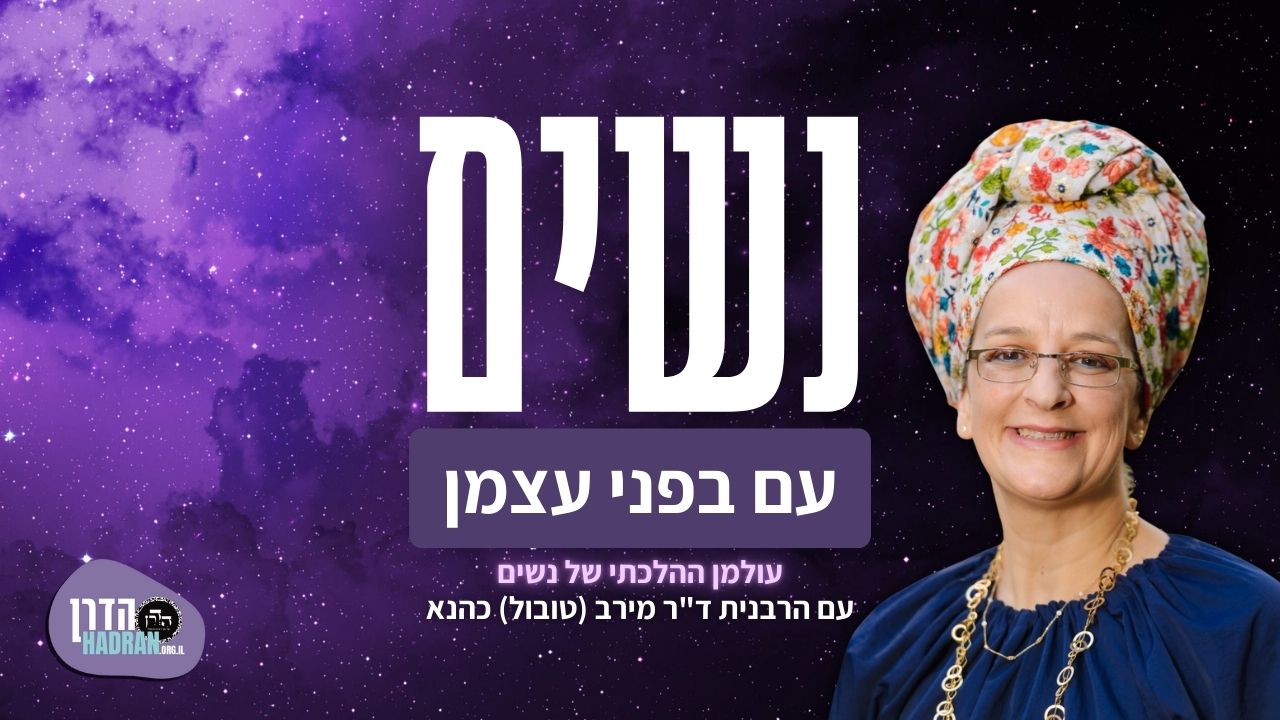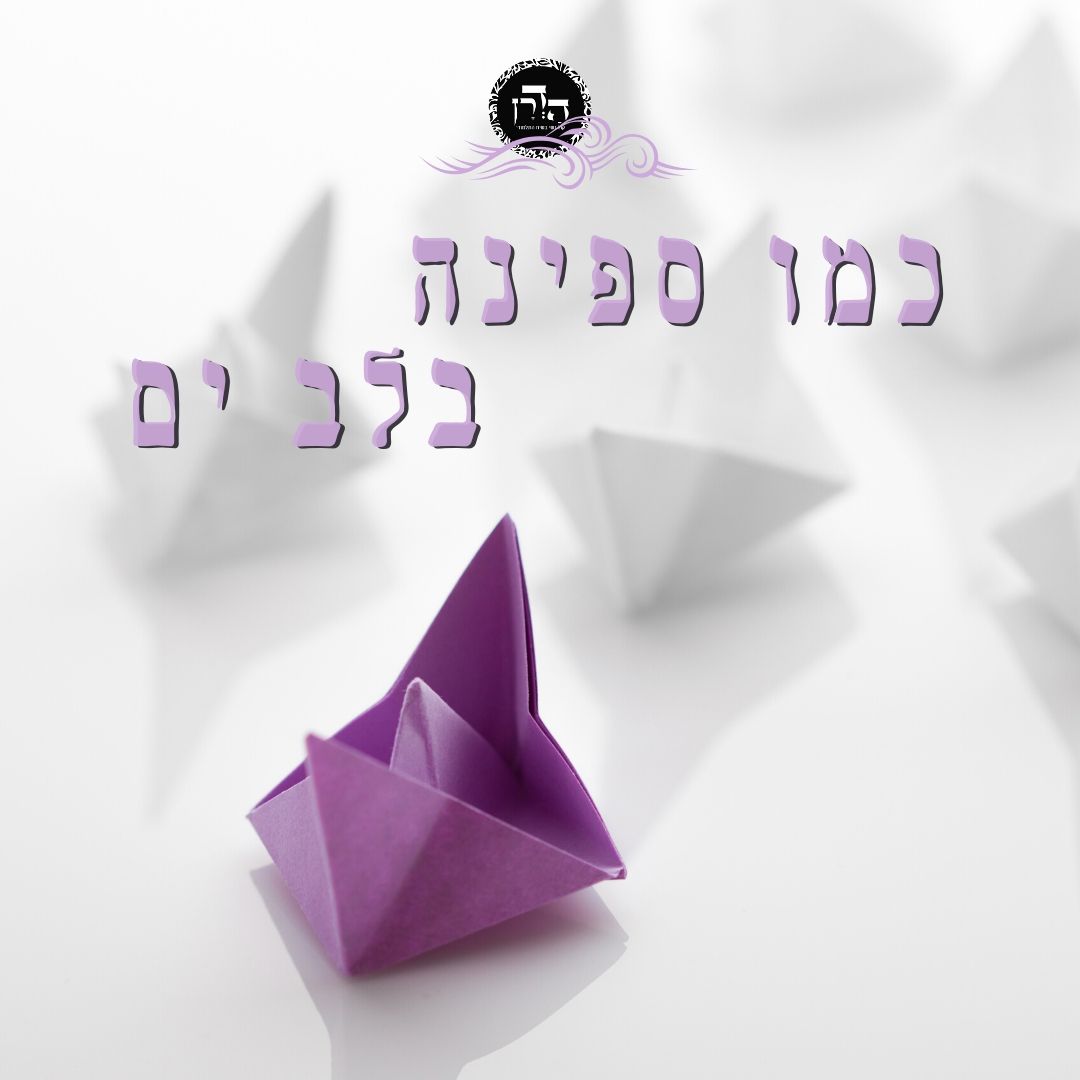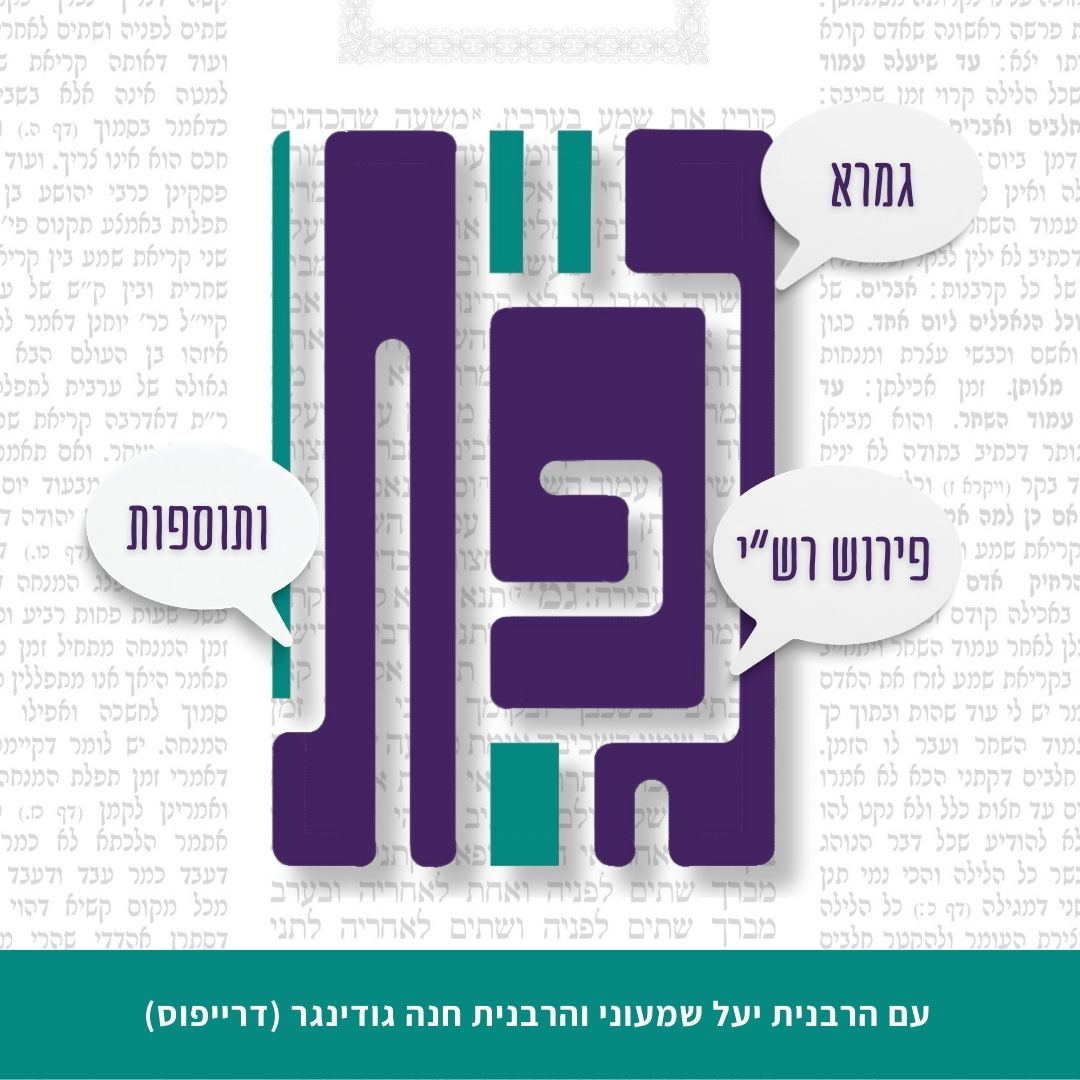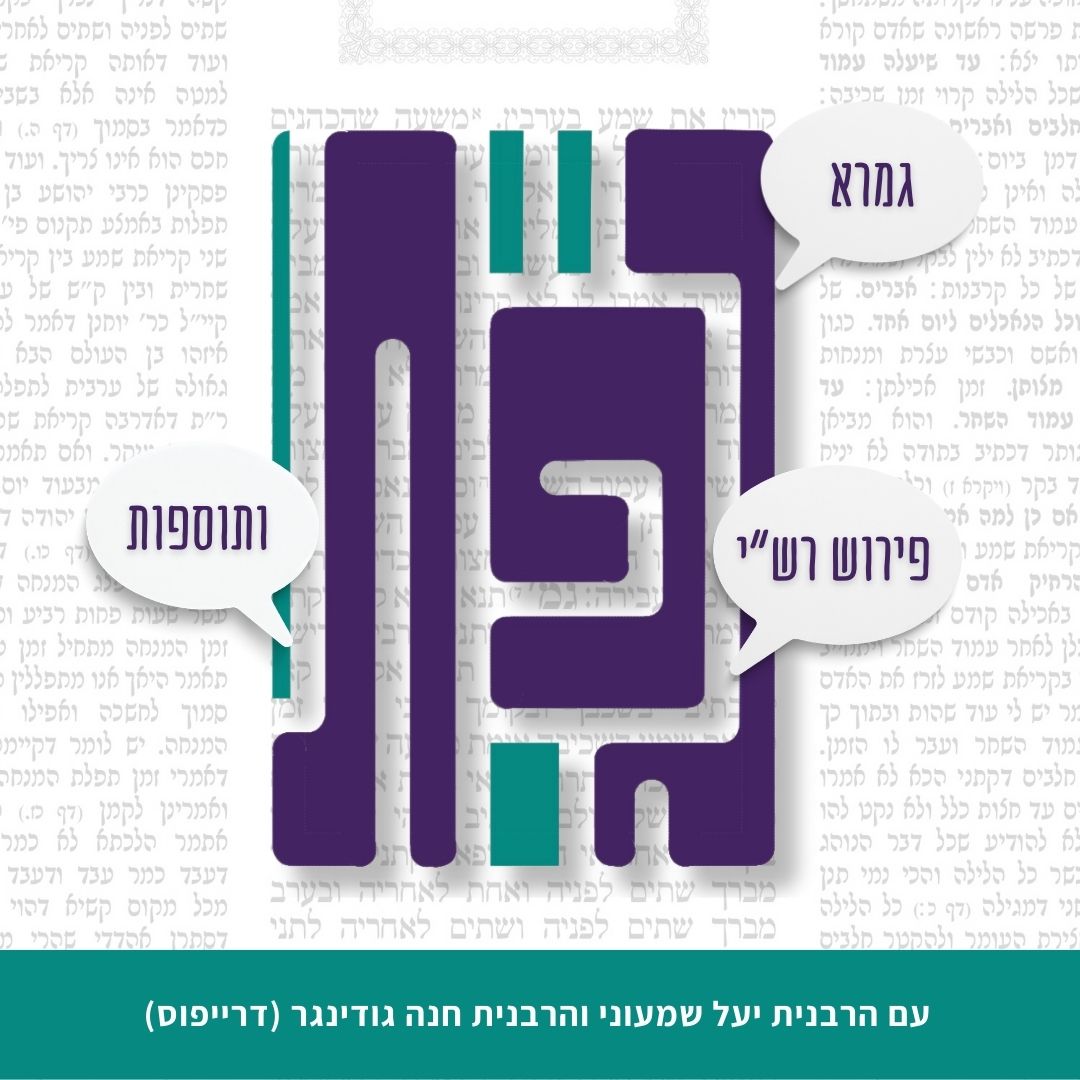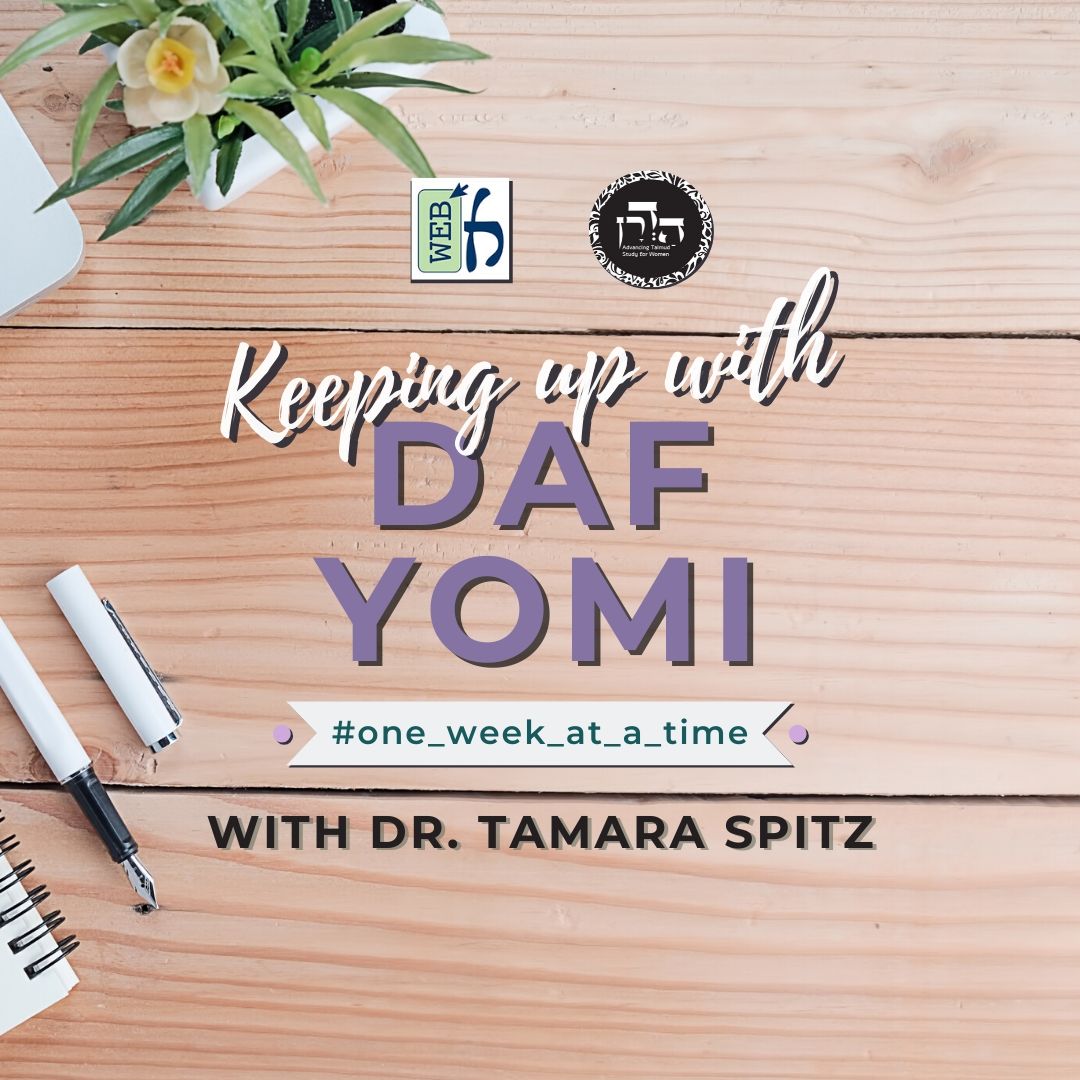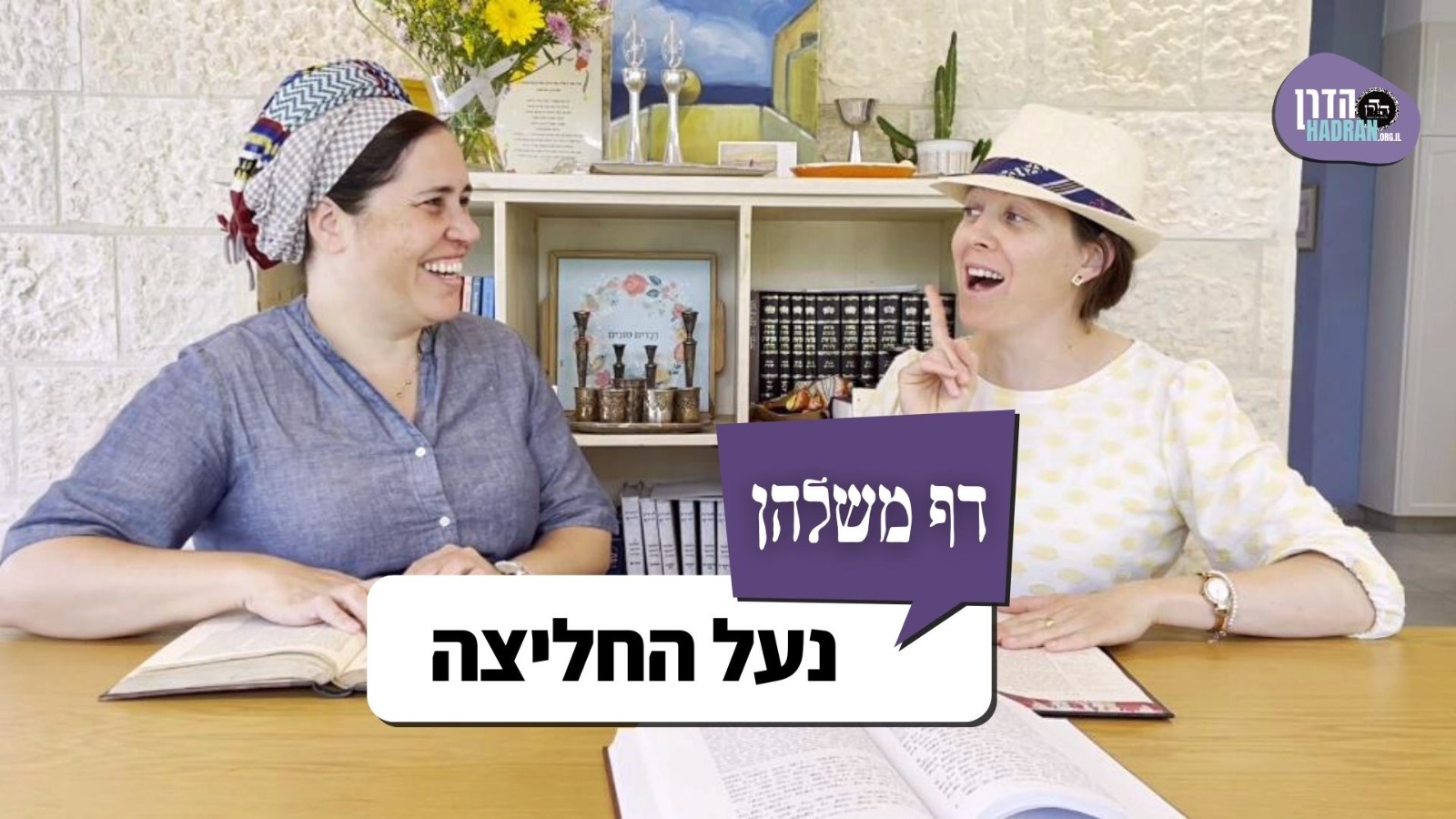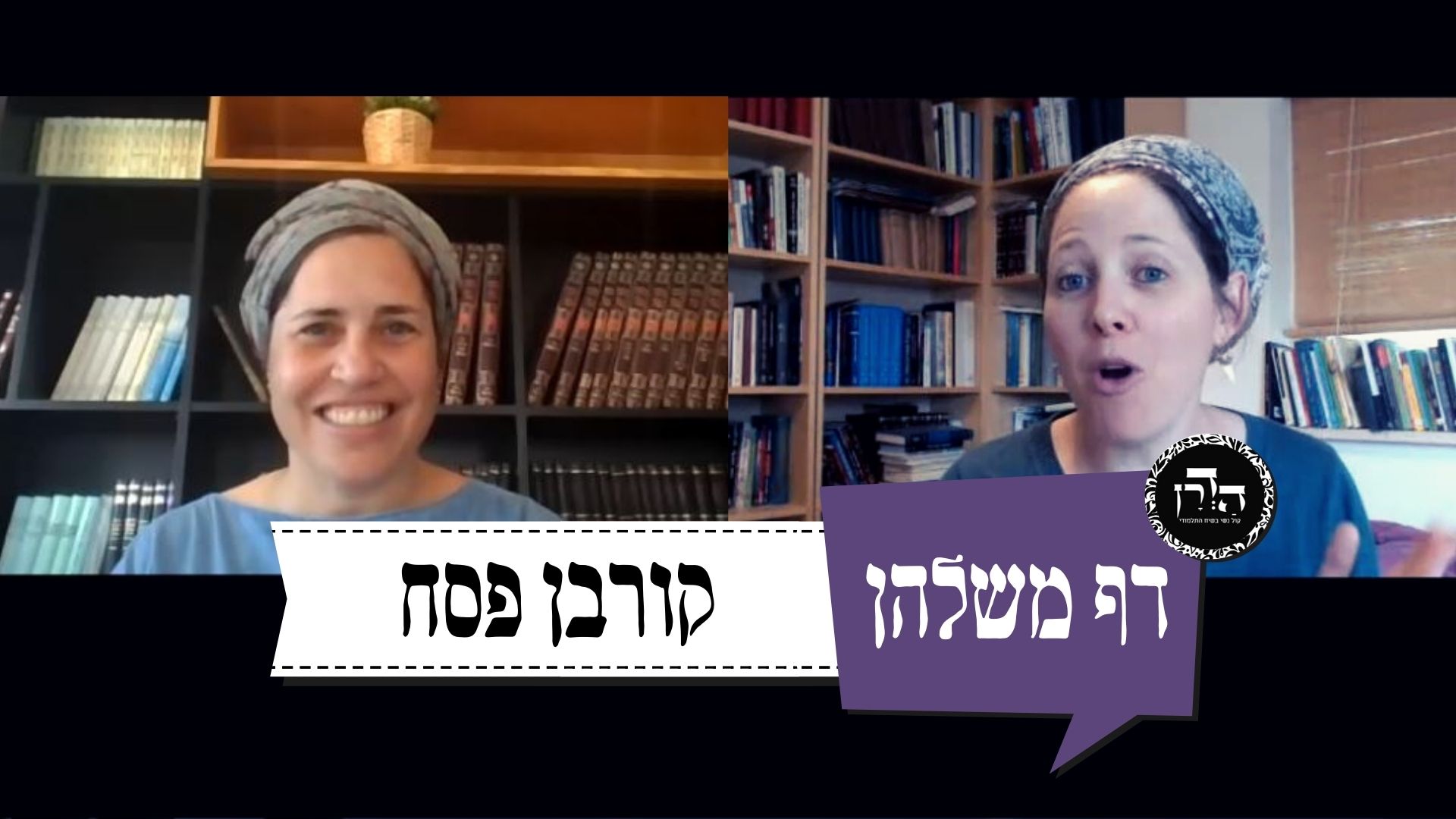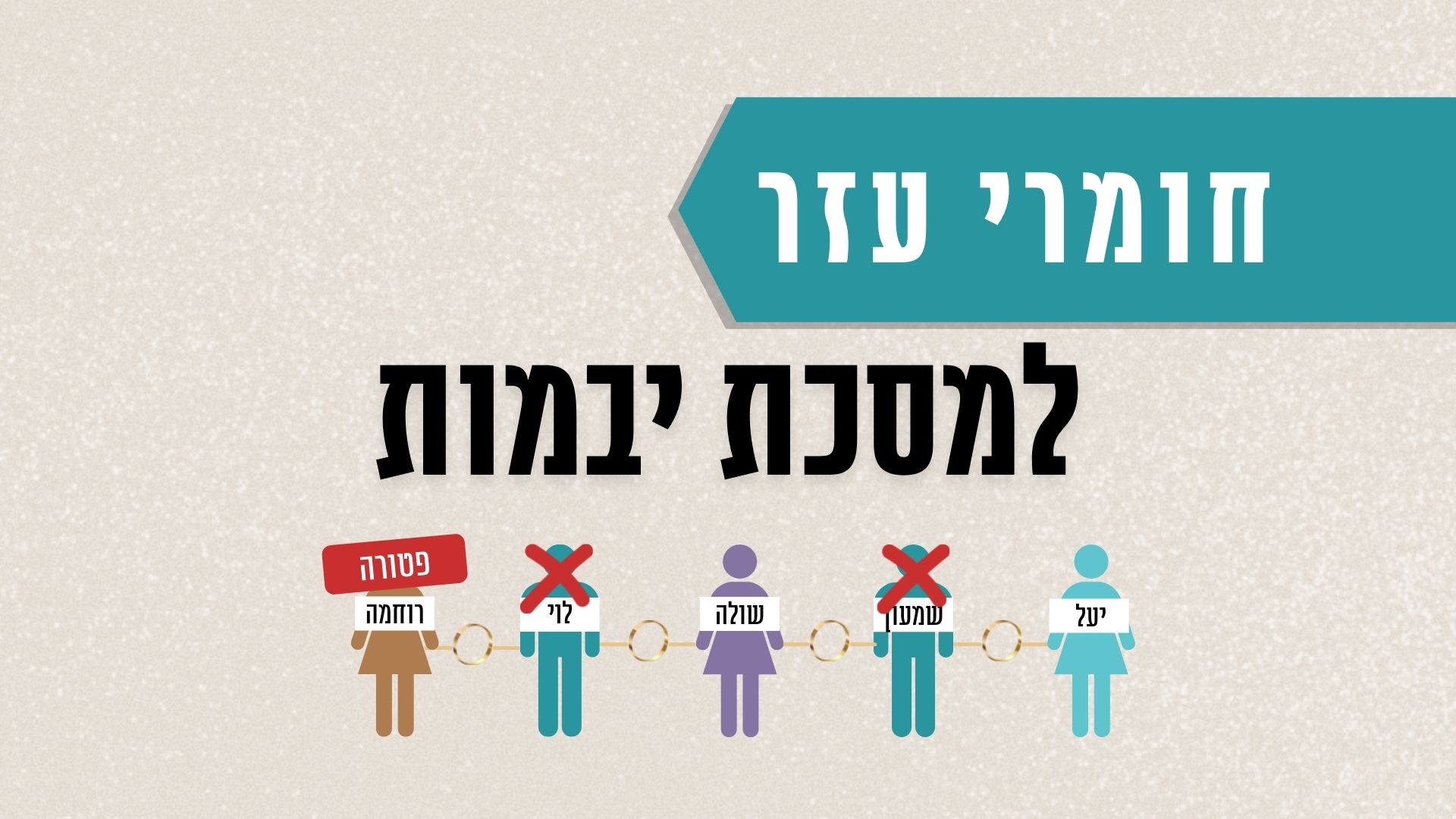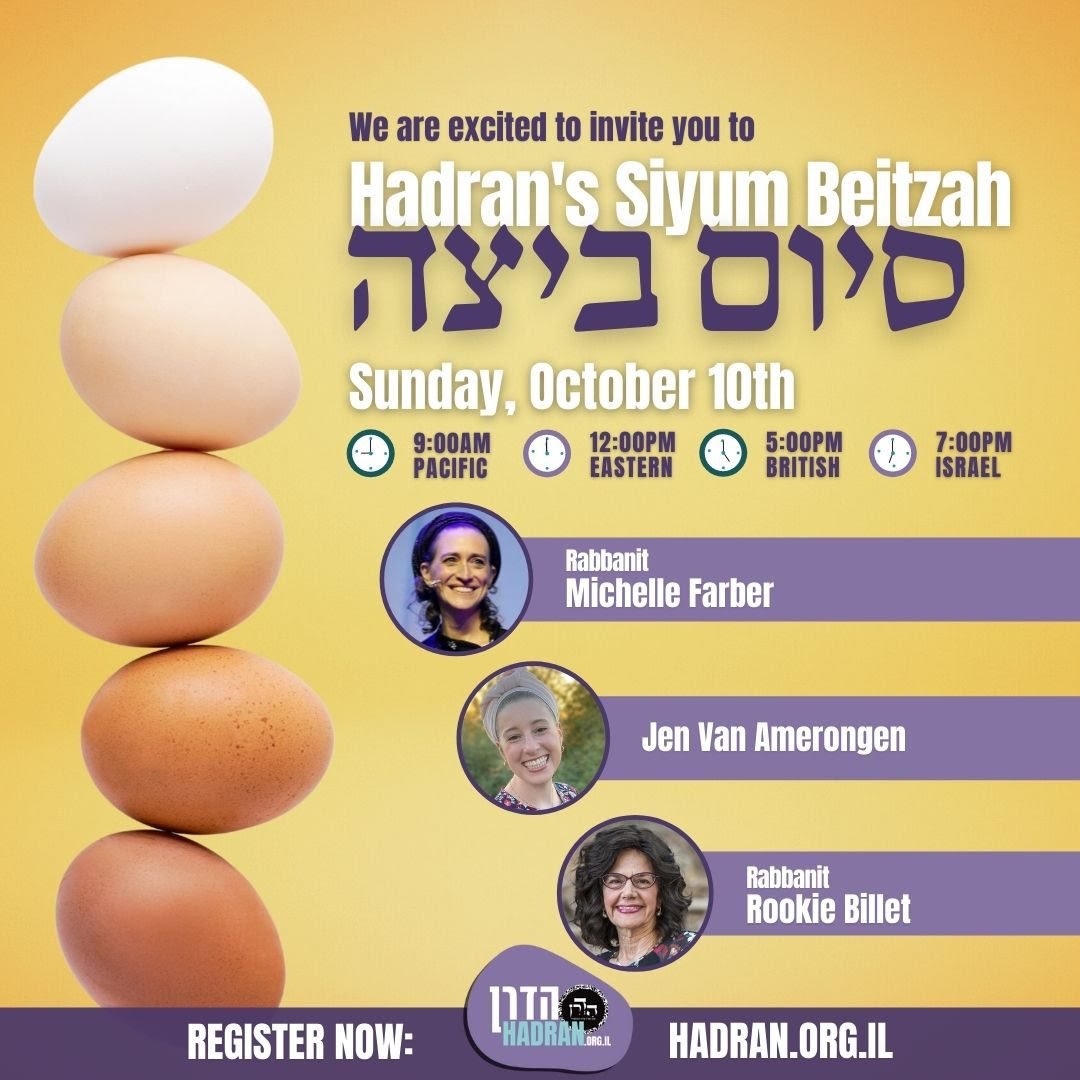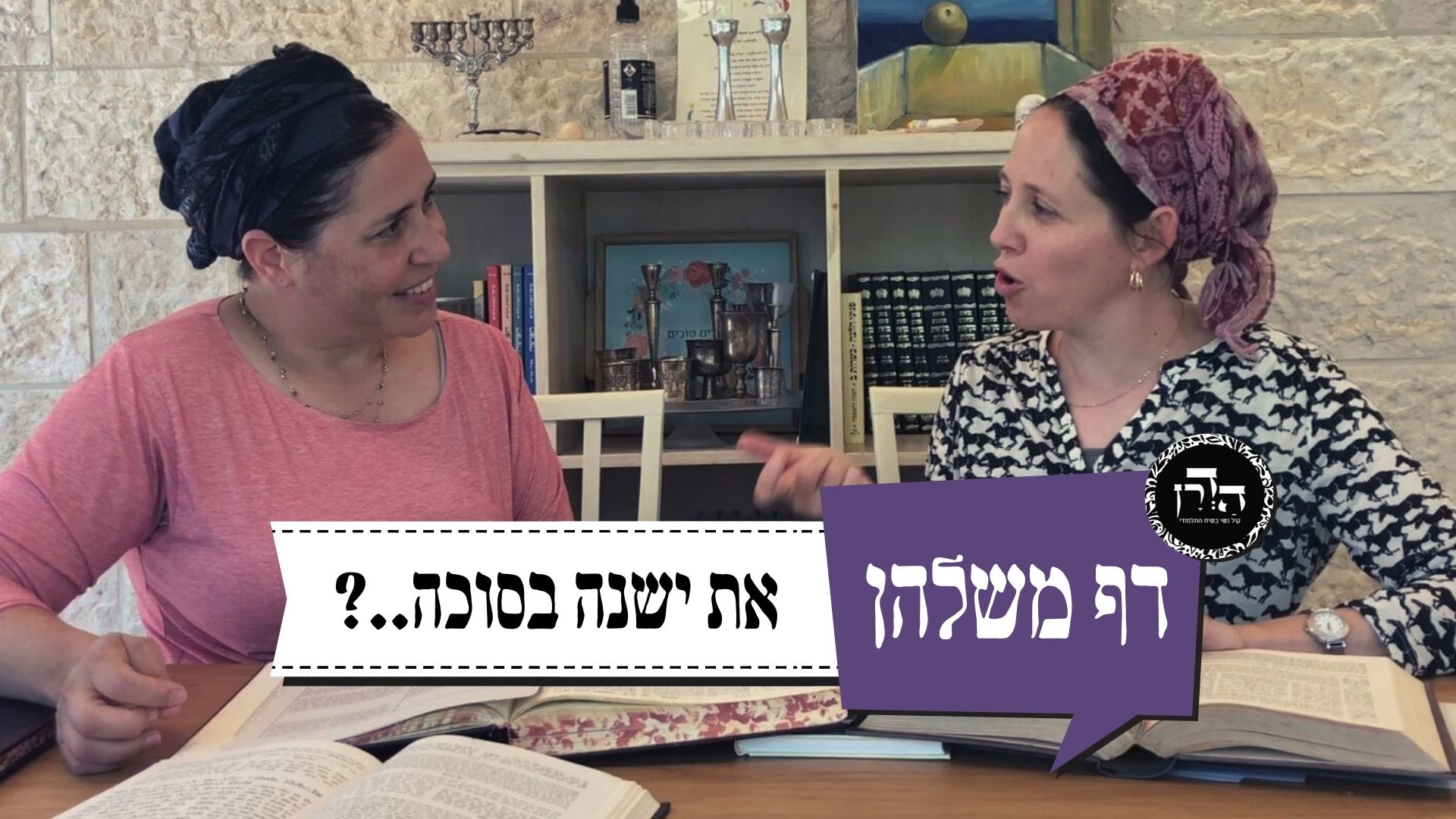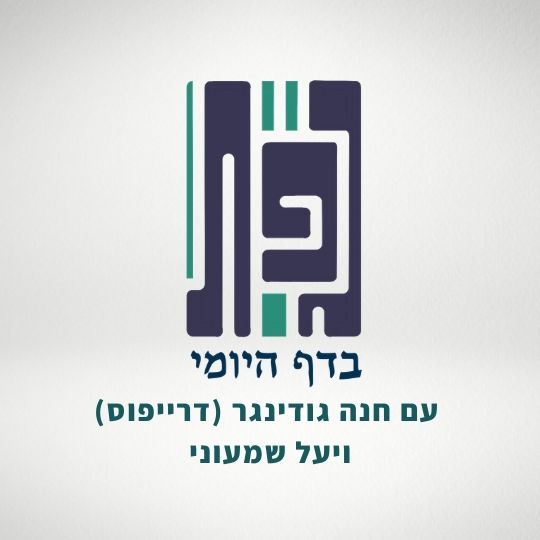באיזה מקרים של קרבן פסול יש פוטנציאל למעילה ובאיזה מקרים אין? למה?
רוצה להקדיש שיעור?
כלים
העמקה
רוצה להבין מה באמת קורה מתחת לפני השטח של הסוגיה?
שיעורים, פודקאסטים והרחבות של מיטב המורות שלנו יפתחו לך עוד זוויות וכיווני חשיבה.
חדשה בלימוד הגמרא?
זה הדף הראשון שלך? איזו התרגשות עצומה! יש לנו בדיוק את התכנים והכלים שיעזרו לך לעשות את הצעדים הראשונים ללמידה בקצב וברמה שלך, כך תוכלי להרגיש בנוח גם בתוך הסוגיות המורכבות ומאתגרות.
פסיפס הלומדות שלנו
גלי את קהילת הלומדות שלנו, מגוון נשים, רקעים וסיפורים. כולן חלק מתנועה ומסע מרגש ועוצמתי.
מעילה ב
קׇדְשֵׁי קָדָשִׁים שֶׁשְּׁחָטָן בַּדָּרוֹם – מוֹעֲלִין בָּהֶן. שְׁחָטָן בַּדָּרוֹם וְקִיבֵּל דָּמָן בַּצָּפוֹן, בַּצָּפוֹן וְקִיבֵּל דָּמָן בַּדָּרוֹם,
MISHNA: Offerings of the most sacred order that were disqualified before their blood was sprinkled on the altar, e.g., if one slaughtered them in the south of the Temple courtyard, and not in the north as required, are subject to the following halakha: One is liable for misusing them, i.e., one who derives benefit from them must bring a guilt offering and pay the principal and an additional one-fifth of their value. If he improperly slaughtered them in the south of the courtyard and properly collected their blood in the north, or even if he properly slaughtered them in the north of the courtyard but improperly collected their blood in the south, although the more significant rite was performed improperly, one is liable for misuse if he derives benefit from the animals.
שָׁחַט בַּיּוֹם וְזָרַק בַּלַּיְלָה, בַּלַּיְלָה וְזָרַק בַּיּוֹם, אוֹ שֶׁשְּׁחָטָן חוּץ לִזְמַנּוֹ וְחוּץ לִמְקוֹמוֹ – מוֹעֲלִין בָּהֶן.
The same halakha that applies if the location of the sacrificial rites was altered likewise applies if the time of those rites was altered. Accordingly, if one properly slaughtered them during the day and improperly sprinkled their blood at night, or if he improperly slaughtered them at night and properly sprinkled their blood during the day, one is liable for misuse if he derives benefit from the animals. Or in a case where one slaughtered them with the intent to partake of their meat or sprinkle their blood beyond its designated time, rendering it piggul, or outside its designated area, disqualifying the offering, he is liable for misusing them if he derives benefit from the animals.
כְּלָל אָמַר רַבִּי יְהוֹשֻׁעַ: כׇּל שֶׁהָיָה לָהּ שְׁעַת הֶיתֵּר לַכֹּהֲנִים – אֵין מוֹעֲלִין בָּהּ, וְכׇל שֶׁלֹּא הָיָה לָהּ שְׁעַת הֶיתֵּר לַכֹּהֲנִים – מוֹעֲלִין בָּהּ.
Rabbi Yehoshua stated a principle with regard to misuse of disqualified sacrificial animals: With regard to any sacrificial animal that had a period of fitness to the priests before it was disqualified, one is not liable for misusing it. Misuse applies specifically to items consecrated to God, which are not permitted for human consumption at all. Once the offering was permitted for consumption by the priests, it is no longer in that category. And with regard to any sacrificial animal that did not have a period of fitness for the priests before it was disqualified, one is liable for misusing it if he derives benefit from it, as it remained consecrated to God throughout.
אֵיזוֹ הִיא שֶׁהָיָה לָהּ שְׁעַת הֶיתֵּר לַכֹּהֲנִים? שֶׁלָּנָה, וְשֶׁנִּטְמְאָה, וְשֶׁיָּצְאָה.
Which is the sacrificial animal that had a period of fitness for the priests? This category includes a sacrificial animal whose meat remained overnight after its blood was presented on the altar and therefore came to have the status of notar and was therefore disqualified, and one that was disqualified when it became ritually impure, and one that left the Temple courtyard and was thereby disqualified. All of these disqualifications transpired after consumption of the sacrificial meat was permitted, and therefore one who derives benefit from these offerings is not liable for misuse.
וְאֵיזוֹ הִיא שֶׁלֹּא הָיָה לָהּ שְׁעַת הֶיתֵּר לַכֹּהֲנִים? שֶׁנִּשְׁחֲטָה חוּץ לִזְמַנָּהּ, חוּץ לִמְקוֹמָהּ, וְשֶׁקִּיבְּלוּ פְּסוּלִין וְזָרְקוּ אֶת דָּמָה.
And which is the sacrificial animal that did not have a period of fitness for the priests? It is a sacrificial animal that was slaughtered with the intent to partake of it or sprinkle its blood beyond its designated time, or outside its designated area, or one that those unfit for Temple service collected and sprinkled its blood. All of these disqualifications took effect before consumption of the sacrificial meat was permitted. The offerings therefore remain consecrated to God, and one is liable for misuse if he derives benefit from them.
גְּמָ׳ קָתָנֵי: קׇדְשֵׁי קָדָשִׁים שֶׁשְּׁחָטָן בַּדָּרוֹם – מוֹעֲלִין בָּהֶן. פְּשִׁיטָא, מִשּׁוּם דִּשְׁחִיטָתָן בַּדָּרוֹם אַפֵּיקִינּוּן מִידֵי מְעִילָה?
GEMARA: The mishna teaches: With regard to offerings of the most sacred order that were disqualified before their blood was sprinkled on the altar, e.g., if one slaughtered them in the south of the Temple courtyard, one who derives benefit from them is liable for misusing them. The Gemara asks: Isn’t it obvious? Just because their slaughter was performed in the south, should we revoke their status as subject to the halakhot of misuse?
אִיצְטְרִיךְ, סָלְקָא דַּעְתָּךְ אָמֵינָא הוֹאִיל וְאָמַר עוּלָּא אָמַר רַבִּי יוֹחָנָן: קָדָשִׁים שֶׁמֵּתוּ – יָצְאוּ מִידֵּי מְעִילָה דְּבַר תּוֹרָה, הָכִי נָמֵי קׇדְשֵׁי קָדָשִׁים לְגַבֵּי דָרוֹם, כְּמָה דְּחַנְקִינּוּן דָּמֵי.
The Gemara answers: It was necessary for the mishna to mention the case of slaughtering them in the south, as it might enter your mind to say that since Ulla says that Rabbi Yoḥanan says: Sacrificial animals that died without being sacrificed are excluded from being subject to the halakhot of misuse by Torah law, so too, in the case of offerings of the most sacred order that were improperly slaughtered in the south, they are considered as though they were strangled to death, and therefore they are no longer subject to misuse.
קָא מַשְׁמַע לַן: קָדָשִׁים שֶׁמֵּתוּ – לָא חֲזוּ כְּלָל. אֲבָל דָּרוֹם – נְהִי דְּאֵינוֹ רָאוּי לְקׇדְשֵׁי קָדָשִׁים, אֲבָל רָאוּי הוּא לְקָדָשִׁים קַלִּים.
Consequently, the mishna teaches us that although they were slaughtered improperly, they are not considered to have the status of sacrificial animals that died, as those are not fit at all. But with regard to slaughtering an animal in the south, although this is not fitting for offerings of the most sacred order, yet the act is still classified as slaughter of sacrificial animals, as slaughter in the south is fitting for offerings of lesser sanctity.
לְמָה לִי לְמִיתְנֵי כׇּל הָנֵי?
§ The Gemara asks: Why do I need the mishna to teach all of these different cases? It could have mentioned just one case, from which one would have derived the principle that even in a situation where the rite of the offering is not performed in the proper manner, the animal can still be subject to the halakhot of misuse.
צְרִיכִי: אִי תְּנָא שְׁחָטָן בַּדָּרוֹם וְקִיבֵּל דָּמָן בַּצָּפוֹן, הָכָא דְּאִית בְּהוּ מְעִילָה, מִשּׁוּם דְּקַבָּלָה בַּצָּפוֹן הוּא. אֲבָל שְׁחָטָן בַּצָּפוֹן וְקִיבֵּל דָּמָן בַּדָּרוֹם, הוֹאִיל וְקִיבֵּל בַּדָּרוֹם הוּא – נָפֵיק מִידֵי מְעִילָה.
The Gemara explains: All these cases are necessary. If the mishna had taught only the case of one who improperly slaughtered them in the south of the courtyard and properly collected their blood in the north, one might have thought that it is only here, in this case, that the animals are subject to the halakhot of misuse, as the collection of the blood was in the north. But if he slaughtered them in the north and collected their blood in the south, since the collection, which is a more fundamental rite than the slaughter, is in the south, one might think that they are removed from the status of being subject to the halakhot of misuse. Therefore, the mishna mentions that case as well.
וְאִי תְּנָא הַאי, הֲוָה אָמֵינָא: יְמָמָא זְמַן הַקְרָבָה הוּא, אֲבָל שְׁחָטָהּ בַּלַּיְלָה וְזָרַק בַּיּוֹם – לַיְלָה לָאו זְמַן הַקְרָבָה, וְהַאי דְּשָׁחֵט בַּלַּיְלָה – דְּנָפֵיק מִידֵי מְעִילָה!
And if the mishna had taught only these aforementioned cases, I would say that only in such situations is the offering subject to the halakhot of misuse, as they were at least sacrificed during the day, which is the appropriate time for sacrifice. But if one slaughtered an offering at night and sprinkled its blood during the day, it would not be subject to the halakhot of misuse, as night is not the appropriate time for sacrifice, and therefore in this case of one who slaughtered at night, the animal is removed from its status of being subject to the halakhot of misuse.
וְאִי תְּנָא שְׁחָטָהּ בַּלַּיְלָה, הֲוָה אָמֵינָא: הוֹאִיל וְקִבֵּל דָּמָה בַּיּוֹם – אִית בַּהּ מְעִילָה, אֲבָל שְׁחָטָן בַּיּוֹם וְזָרַק דָּמָן בַּלַּיְלָה, הוֹאִיל וְלָאו זְמַן הַקְרָבָה הוּא – כְּמַאן דְּחַנְקִינּוּן דָּמֵי, וְלָא אִית בְּהוּ מְעִילָה, קָמַשְׁמַע לַן.
And if the mishna had taught only the case where he slaughtered it at night and collected the blood during the day, I would say: Since he collected the blood during the day, as required, the offering retains its status and is subject to the halakhot of misuse. But if he slaughtered animals during the day and sprinkled their blood, which is the main act of sacrifice, at night, since it is not a time fit for sacrifice, it is considered as though they were strangled, and they are not subject to the halakhot of misuse. Therefore, the mishna teaches us all of these cases.
חוּץ לִזְמַנּוֹ וְחוּץ לִמְקוֹמוֹ. לְמַאי חֲזוּ?
§ The mishna teaches: If one slaughtered sacrificial animals with the intent to partake of their meat or sprinkle their blood beyond its designated time, rendering them piggul, or outside its designated area, disqualifying them, he is liable for misusing them if he derives benefit from them. The Gemara asks: For what are these sacrificial animals fit? Since they are unfit for both sacrifice and consumption by the priests, even in the case of offerings of lesser sanctity, why are they considered as consecrated items that are subject to misuse?
הוֹאִיל וּמְרַצִּין לְפִיגּוּלִין.
The Gemara answers: Since sprinkling their blood on the altar renders them accepted in that they receive their status of being subject to piggul, therefore they have still not entirely lost their sanctified status and are subject to misuse. In other words, an offering with regard to which there was an improper intention is rendered piggul only if all its permitting factors, one of which is sprinkling the blood, are performed properly (see Zevaḥim 28b). The fact that its permitting factors are important for the purpose of rendering it subject to piggul shows that the offering has not lost its consecrated status.
אִיבַּעְיָא לְהוּ: אִי עָלוּ, מַהוּ שֶׁיֵּרְדוּ? רַבָּה אָמַר: אִם עָלוּ – יֵרְדוּ, רַב יוֹסֵף אָמַר: אִם עָלוּ – לֹא יֵרְדוּ.
§ A dilemma was raised before the Sages: In a case where a rite was performed in the wrong location, e.g., offerings of the most sacred order were slaughtered in the south rather than the north, if the offerings had already ascended the altar, what is the halakha as to whether they descend, i.e., are they removed from the altar or are they sacrificed? Rabba says: If they ascended the altar, they shall descend. Rav Yosef says: If they ascended the altar, they shall not descend.
אַלִּיבָּא דְּרַבִּי יְהוּדָה לָא תִּיבְּעֵי לָךְ, דְּכוּלֵּי עָלְמָא לָא פְּלִיגִי דְּאִם עָלוּ – יֵרְדוּ. כִּי פְּלִיגִי אַלִּיבָּא דְּרַבִּי שִׁמְעוֹן.
With regard to this dilemma, the Gemara cites a relevant dispute between Rabbi Yehuda and Rabbi Shimon in a mishna (Zevaḥim 84a). Rabbi Yehuda maintains that in certain cases when an offering became disqualified in the sacred area, i.e., the Temple courtyard, it was removed from the altar. By contrast, Rabbi Shimon rules that any offering that became disqualified once it was already inside the Temple courtyard was not removed from the altar if it ascended there. The Gemara states: In accordance with the opinion of Rabbi Yehuda, you should not raise this dilemma, as everyone, i.e., both Rabba and Rav Yosef, agrees that in the cases of the mishna Rabbi Yehuda would rule that even if the disqualified offerings have ascended the altar, they must descend. They disagree when the dilemma is raised according to the opinion of Rabbi Shimon.
רַב יוֹסֵף כְּרַבִּי שִׁמְעוֹן. רַבָּה אָמַר לָךְ: עַד כָּאן לָא קָאָמַר רַבִּי שִׁמְעוֹן אֶלָּא בַּנִּיתָּנִין לְמַטָּה שֶׁנְּתָנָן לְמַעְלָה אוֹ בַּנִּיתָּנִין לְמַעְלָה שֶׁנְּתָנָן לְמַטָּה,
Rav Yosef holds in accordance with a straightforward interpretation of the opinion of Rabbi Shimon, that the offerings listed in the mishna do not descend from the altar, as they became disqualified inside the Temple courtyard. By contrast, Rabba could have said to you: Rabbi Shimon states that the offerings do not descend only with regard to cases such as the bird sin offering, whose blood should be placed below the red line on the altar, which one placed above the red line; or with regard to offerings such as the bird burnt offering, whose blood should be placed above the red line, which one placed below that line.
וּלְעוֹלָם דִּשְׁחָטָן וְקִבֵּל דָּמָן בַּצָּפוֹן, אֲבָל הָכָא, כֵּיוָן דִּשְׁחָטָן בַּדָּרוֹם – כְּמַאן דְּחַנְקִינּוּן דָּמֵי.
And therefore, Rabbi Shimon is actually dealing with cases where one slaughtered the offerings and collected their blood in the north, in accordance with the halakha. But here, in the cases of the mishna, since one slaughtered them in the south, it is considered as though they were strangled to death, and were not slaughtered at all. Consequently, Rabbi Shimon agrees that they should be removed from the altar.
תְּנַן: קׇדְשֵׁי קָדָשִׁים שֶׁשְּׁחָטָן בַּדָּרוֹם – מוֹעֲלִין בָּהֶן. בִּשְׁלָמָא לְרַב יוֹסֵף נִיחָא, אֶלָּא לְרַבָּה קַשְׁיָא! מַאי מוֹעֲלִין בָּהֶן – מִדְּרַבָּנַן.
We learned in the mishna: With regard to offerings of the most sacred order that were disqualified before their blood was sprinkled on the altar, if one slaughtered them in the south of the Temple courtyard, he is liable for misusing them if he derives benefit from them. Granted, according to the opinion of Rav Yosef, this halakha works out well. Since they remain consecrated and do not become permitted to the priests, they may remain on the altar. But according to the opinion of Rabba, it is difficult: If these offerings must be removed from the altar, why can one be liable for misusing them? The Gemara explains: What is the meaning of the clause: One is liable for misusing them? This means that one is liable for misusing them by rabbinic law, but they are not subject to the halakhot of misuse by Torah law.
מַאי אִיכָּא בֵּין דְּאוֹרָיְיתָא לְרַבָּנַן? דְּאוֹרָיְיתָא מְשַׁלְּמִין חוֹמֶשׁ, דְּרַבָּנַן – לָא.
The Gemara inquires: What practical difference is there between misuse by Torah law and misuse by rabbinic law? The Gemara explains that those who misuse by Torah law must pay an additional one-fifth to the Temple treasury, over and above the principal. By contrast, misuse by rabbinic law does not render one obligated to pay the additional one-fifth.
וּמִי אִיכָּא מְעִילָה מִדְּרַבָּנַן? אִין, דְּאָמַר עוּלָּא אָמַר רַבִּי יוֹחָנָן: קָדָשִׁים שֶׁמֵּתוּ – יָצְאוּ מִידֵי מְעִילָה, דְּבַר תּוֹרָה. אַלְמָא מִדְּאוֹרָיְיתָא לָא אִית לְהוֹן, בִּדְרַבָּנַן אִית בְּהוֹן. הָכִי נָמֵי – מִדְּרַבָּנַן.
The Gemara asks: And is there a concept of misuse of consecrated property by rabbinic law? The Gemara answers: Yes there is, as Ulla said that Rabbi Yoḥanan says: Sacrificial animals that died have been removed from the halakhot of misuse by Torah law. Evidently, it is by Torah law that the halakhot of misuse do not apply to them, but by rabbinic law they do apply to them. So too in this case, where the animals are slaughtered in the south, they are subject to misuse by rabbinic law.
לֵימָא תְּנֵינָא לְהָא דְּעוּלָּא אָמַר רַבִּי יוֹחָנָן! אַף עַל גַּב דִּתְנֵינָא, אִיצְטְרִיךְ דְּעוּלָּא, סָלְקָא דַּעְתָּךְ אָמֵינָא, הָכָא לָא בְּדִילִין מִנְּהוֹן,
The Gemara raises a difficulty: If Rabba is correct that the mishna is referring to misuse by rabbinic law, let us say that we already learned in the mishna that which Ulla says that Rabbi Yoḥanan said. Why, then, was it necessary for Ulla to repeat this halakha? The Gemara explains: Even though we already learned it in the mishna, the statement of Ulla was necessary: It might enter your mind to say that here, with regard to offerings slaughtered in the south, people will not distance themselves from them, as they are no different in appearance from animals sacrificed properly, and therefore the Sages decreed that they are subject to misuse by rabbinic law.
אֲבָל קָדָשִׁים שֶׁמֵּתוּ, הוֹאִיל וּבְדִילִין מִנְּהוֹן, אֵימָא: אֲפִילּוּ מְעִילָה מִדְּרַבָּנַן לָא, קָא מַשְׁמַע לַן.
But in the case of sacrificial animals that died, and were never slaughtered at all, since people distance themselves from them, one might say that they are not subject to misuse even by rabbinic law. There-fore, Ulla teaches us that they are nevertheless subject to misuse by rabbinic law.
מֵתוּ – נָמֵי תְּנֵינָא: הַנֶּהֱנֶה מִן הַחַטָּאת כְּשֶׁהִיא חַיָּה – לֹא מָעַל עַד שֶׁיִּפְגּוֹם. וּכְשֶׁהִיא מֵתָה, כֵּיוָן דְּנֶהֱנָה כׇּל שֶׁהוּא – מָעַל.
The Gemara raises a further difficulty: Didn’t we also learn in a mishna that sacrificial animals that died are subject to the halakhot of misuse by rabbinic law? As the mishna (18a) teaches: One who derives benefit from a sin offering while it is alive is not liable for misuse until he causes it one peruta worth of damage. But if he derives benefit from it when it is dead, since it will not be redeemed it cannot be damaged. Therefore, once he derives one peruta worth of benefit from it, even without damaging it, he is liable for misuse. This misuse must apply by rabbinic law, as sacrificial animals that have died are not subject to the halakhot of misuse by Torah law. If so, the halakha that these animals are subject to misuse by rabbinic law is already stated in a mishna and therefore there is no reason for Ulla to repeat it.
סָלְקָא דַּעְתָּךְ
The Gemara answers: It might enter your mind

